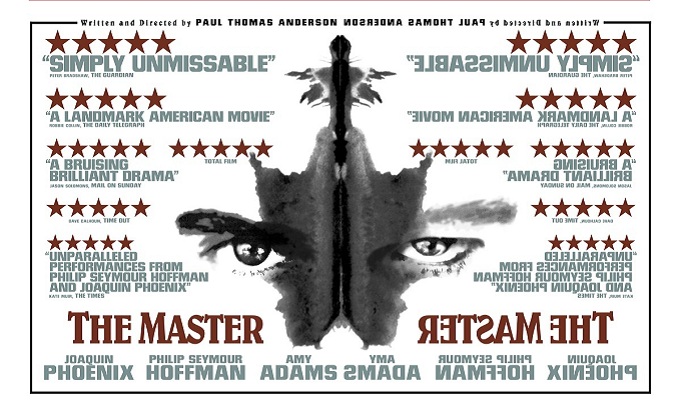The Master Review

The Master
A Naval veteran (Joaquin Phoenix) arrives home from war unsettled and uncertain of his future – until an encounter with a charismatic cult leader.
The Good:
The Master is visually breathtaking and showcases performances that are almost certainly going to be firm contenders come awards season.
Freddie Quill (Joaquin Phoenix) is a troubled WWII war veteran, left mentally and physically damaged by years of fighting and lost love. Numbing his pains with alcohol, he struggles to adapt to the world he left behind. Phoenix’s unprecedented performance demonstrates his immense skill and power as an actor; oozing raw emotion, aggression and vulnerability.
His awakening as a new man begins when he has a chance meeting with The Master (Philip Seymour Hoffman) a charismatic leader of a new belief system called The Cause, which welcomes Quills’ lost soul into its warm embrace.
The energy and charisma between these two characters, played out in long intrusive close ups, secures their status as two of the most talented and important actors working in film today. Whatever you think of the film as a whole it’s impossible to deny these stunning performances.
Paul Thomas Anderson (Boogie Nights, There Will Be Blood) shows off these performances beautifully through the use of 65mm film. It’s well worth making the effort to catch The Master in this ideal format if you can. The colouring of every part of this film is lush and beautifully effective, transporting you back to a golden era of filmmaking. Anderson’s daring choice to capture intense emotional scenes with extreme close ups and long running takes leaves the audience unable to look away and the actors unable to hide.
Johnny Greenwoods brilliant instrumental score is another of the film’s many highlights, pulling audiences further into the drama and leaving them with a powerful feeling of impending doom at the right moments. It’s a stroke of genius in itself and perfectly combined with flawless acting and interesting directorial choices.
The Bad:
Despite all the visuals and performances being among the best of the year, the narrative seems so cryptic that Paul Thomas Anderson may be the only person who really knows what is going on in this film. This isn’t so surprising given his past work, but some audiences may find this challenging and perhaps even self-indulgent.
The Master is probably 20 minutes longer than it could be, with too much of a good thing perhaps resulting in inevitable frustration for audiences whose patience has worn thin.
Equally frustrating, is the under-use of Amy Adams talents. In yet another deeply diverse role, Adam provides the stern, determined force behind the master, overshadowed in public due to her gender and the inherent prejudice of the time. It would have been interesting to this character explored more throughout the film.
The Ugly Truth:
It’s difficult to review The Master because it treads a fine line between being a masterpiece and being the most arrogant film of the year. It will divide opinions intensely and openly invites endless analyses. However, The Master might just be a rare work of pure genius and deserves to be seen at least once. Though you may want and need to watch it a few times to unravel all its complicated cryptic messages.